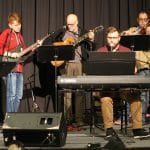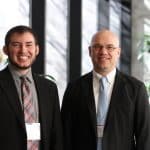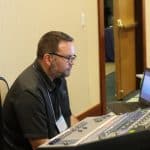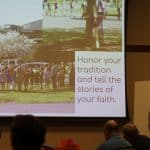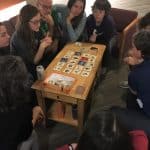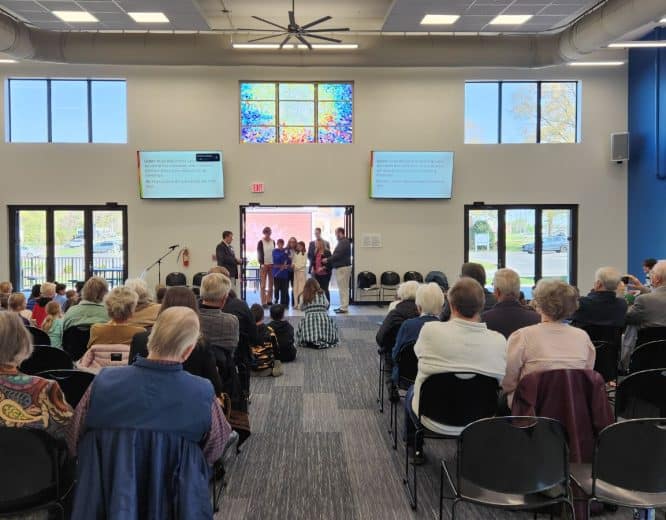Mennonite Educators Conference Inspires Hope
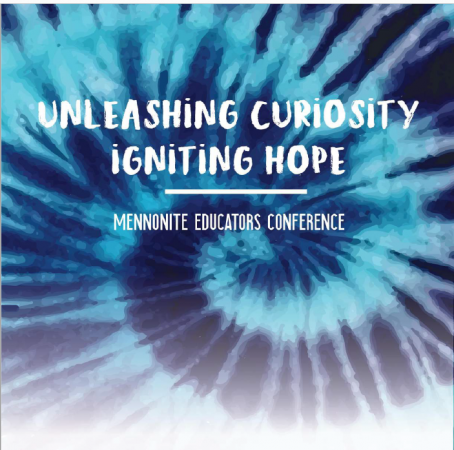
More than 30 Eastern Mennonite School K-12 administrators, faculty and staff participated in the Mennonite School’s Council biennial conference February 7 and 8. In addition to the formal input, the time away provided time for EMS staff to relax and reflect together. Following is a report by Camille Dager of Mennonite Education Agency.
MENNONITE EDUCATION AGENCY – The 2020 Mennonite Educators Conference (MEC) delivered a powerful message of positivity and empowerment while helping educators grapple with big picture questions, such as “How are we preparing future leaders?” “What do Mennonite schools offer?” and “What more can we do?” More than 350 Anabaptist-Mennonite educators from the United States and Canada participated in this year’s event, held Feb. 6-8 at the National Conference Center, Leesburg, Virginia.
The conference is a biennial professional development and networking event, hosted by Mennonite Education Agency (MEA) and the Mennonite Schools Council (MSC), a network of 25 Mennonite schools serving students from early childhood through grade 12.
This year’s conference, “Unleashing Curiosity, Igniting Hope,” featured inspirational keynote speakers, storytelling in the form of brief PechaKucha (Japanese for “chit chat”) presentations, participant-driven learning camps and a first-of-its-kind research study on the unique beliefs and practices that make a difference in MSC schools.
“The intersection of faith and education makes MSC schools different,” said Peter Wiens, Ph.D., assistant professor of teacher education at the University of Nevada, Las Vegas, and co-author of the “Survey of Mennonite Schools Council Educators.” He and fellow researcher, Paul J. Yoder, assistant professor of teacher education, Eastern Mennonite University, presented findings from their 2019 survey on teaching practices and pre-service training of nearly 400 teachers at 25 MSC schools. The survey focused on faith integration, pre-service training, instructional practices and personal beliefs.
“One of the places where we found hope was in faith integration,” said Yoder. “Teachers in Mennonite schools have high self-efficacy in communicating faith, despite today’s changing educational landscape.” Almost 99% of teachers felt that they had “a great deal” or “quite a bit” of influence to “show students they are loved and valued by God.”
Educators also expressed confidence in their abilities to teach and model peacebuilding, to help students grow in their understanding of stewardship for the natural environment, to grow in relationship with Jesus, to understand biblical discernment and to create a classroom where it is emotionally safe to raise questions and care for each other.
Keynote speaker Kristin Anderson, founder and CEO of The Brilliance Project for sustainable professional learning for educators, underscored the importance of these factors by pointing to research that shows that teachers matter more to student achievement than any other aspect of schooling. She offered teachers a road map through and around professional obstacles and educational roadblocks.
“When we collectively realize that all of our learning goals are possible, it ignites hope in all those involved in the education process,” said Anderson.
“There is an incredible power in the upward cycle of learning success when all those involved in the education process are striving to be the best version of themselves,” she continued. Her plan for “Unleashing Your Personal Power” includes being vulnerable, having a learner mindset, surrounding oneself with encouragers and taking small steps toward the overall larger goal.
“Kristin gave us big ideas and concrete ways to get started – with research to back it up,” said Lisa Otto, a high school math teacher at Central Christian School, Kidron, Ohio.
“I appreciated how Kristin motivated everyone in the room to, not only tap into their own personal power for the good of education, but to also remember that we are not alone,” said Karla Rupp, instructor at Freeman Academy, Freeman, South Dakota. “God is alongside us all in the entire process.”
Keynote speaker Rachel Swartzendruber Miller, Ph.D., vice president of advancement at Hesston (Kansas) College, encouraged the educators to embrace their influence and successes and become “brand ambassadors, recruiters and ‘owners’ of our wonderful institutions.” She urged educators to fully realize what Mennonite schools offer. In addition to advantages such as small class size, strong academics, varied programming and a broad exposure to the arts, Swartzendruber Miller emphasized the unique aspects of an Anabaptist Mennonite education:
• Christ-centered community
• Discipleship
• A Gospel ethic of love
“We must all be Mennonite education brand owners,” said Swartzendruber Miller. “Share your stories! Do what you do but do it more publicly.”
PechaKucha presentations
EMS was one of four schools that shared PechaKucha presentations. See the EMS presentation. Presenters were Heidi Byler (third grade), Lynette Mast (kindergarten), Erika Gascho (fifth grade) and Maria Archer (K-8 principal). The elementary team at EMS has built a culture over their 15-year history where dignity for all, and peace with creation and each other, is systemic and evident throughout.
Others were shared by faculty from Lancaster (Pennsylvania) Mennonite School; Dock Mennonite Academy, Lansdale, Pennsylvania, and Bethany Christian Schools, Goshen, Indiana. Each shared stories that showed how their schools were modeling AnabaptistMennonite faith values such as hope, kindness, empathy and community.
“Hope is best lived out through community,” said PechaKucha presenter Todd Bowman of Lancaster Mennonite School. “As communities, our schools are uniquely poised to live hope.”
Taking advantage of their own unique opportunity to meet in community, the educators gathered in participant-led learning camps to discuss a wide range of topics, including teaching practices, classroom management strategies, subject matter discussions, student self-efficacy, anti-racism, selfcare and other uniquely Anabaptist Mennonite topics, such as restorative practices, creation care, faith formation and integration, chapel planning and the Encounter Bible curriculum.
“It’s always good to know that there are others who are excited by the same topics,” said Curt Stutzman of Eastern Mennonite School.
Lindsay Carson, principal of Lancaster Mennonite School’s New Danville Campus, said “The conference provides an opportunity for us to see the bigger picture and to know that we are not doing this alone.”
During the conference, leaders from MEA and MSC celebrated Elaine Moyer, senior director of MEA and agency liaison with MSC, who is retiring as of February 28, 2020. Moyer is a trailblazer in Mennonite education with more than 45 years of service, including 11 years with MEA.
“Elaine has always had an entrepreneur missional vision for Mennonite education,” said Richard Thomas, MEA Board Chair. “This showed in the programs that she helped to create, such as the Encounter Faith Formation Curriculum, developed through MSC. She has been a key to the success of MSC and will be greatly missed.”
Moyer thanked the educators for their dedication and hard work and challenged the group, saying, “What can we do to extend this vision – and the love of Jesus?”
In his closing remarks, Conrad Swartzentruber, executive committee chair of MSC and superintendent of Dock Mennonite Academy, encouraged the educators in this vision, saying “You are the ones who pour your lives into these students, planting seeds that you may never see sprout, yet with the hope that, because of our Christ-centered focus, one day these seeds will grow.”
The conference ended with a time of praise and worship. The National Conference Center echoed with the chorus of songwriter Chris Rice’s song, “There is a Candle”:
Carry your candle, run to the darkness
Seek out the hopeless, confused and torn
Hold out your candle for all to see it
Take your candle, and go light your world
Take your candle, and go light your world
In partnership with the church, Mennonite Schools Council (MSC) advances Christ-centered Early Childhood-12 education by networking schools and equipping them to implement the vision of Anabaptist/Mennonite education. MSC boldly opens doors for Christ-centered Anabaptist/Mennonite education by innovatively networking and resourcing schools.
Mennonite Education Agency (MEA), headquartered in Elkhart, Indiana, serves Anabaptist educational institutions by providing resources, programing and support to schools, administrators and teachers. As an agency of Mennonite Church USA, MEA ties church and school together in a complementary way to ensure students receive a quality Anabaptist Mennonite education. mennoniteeducation.org
Check out some more photos from this story
